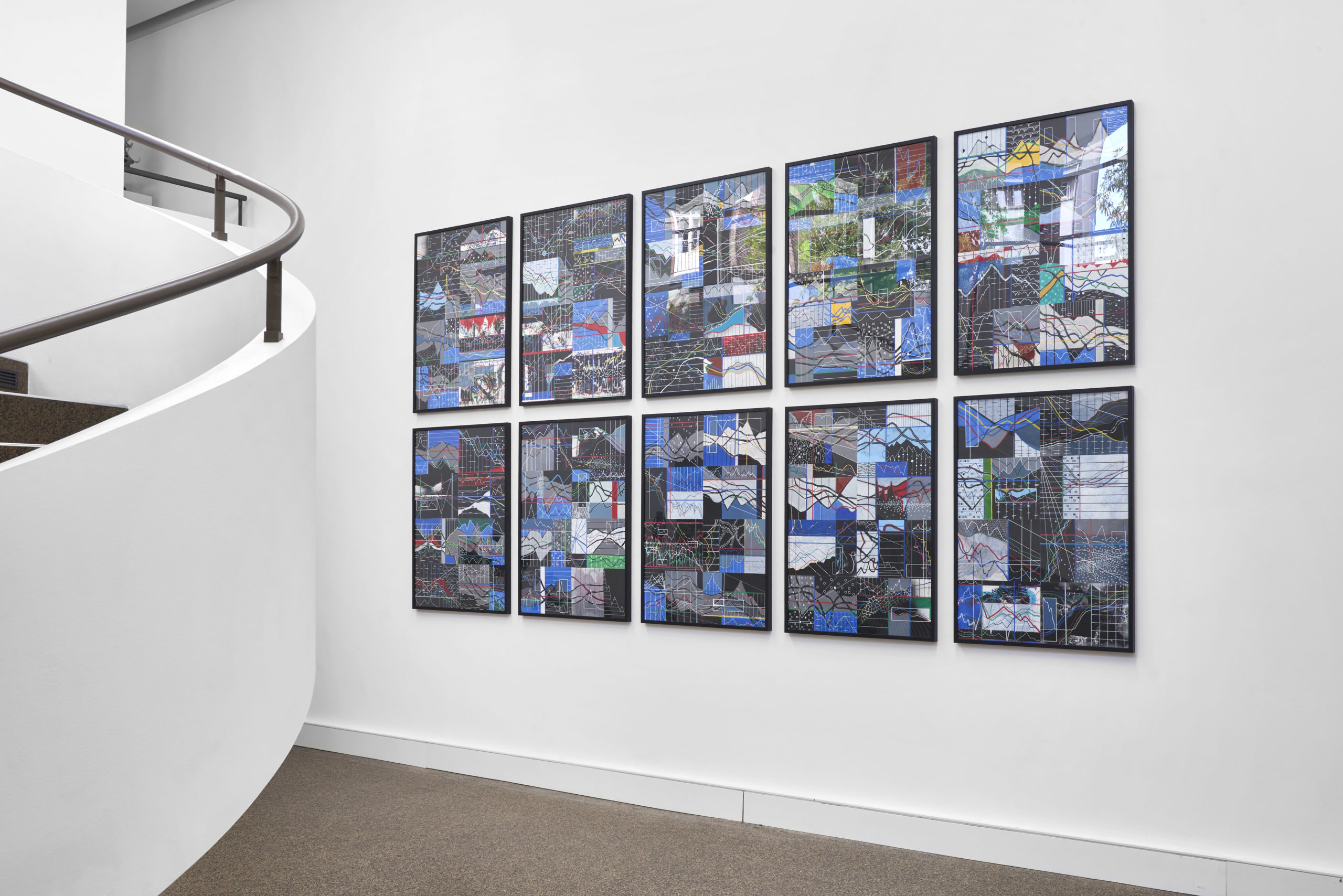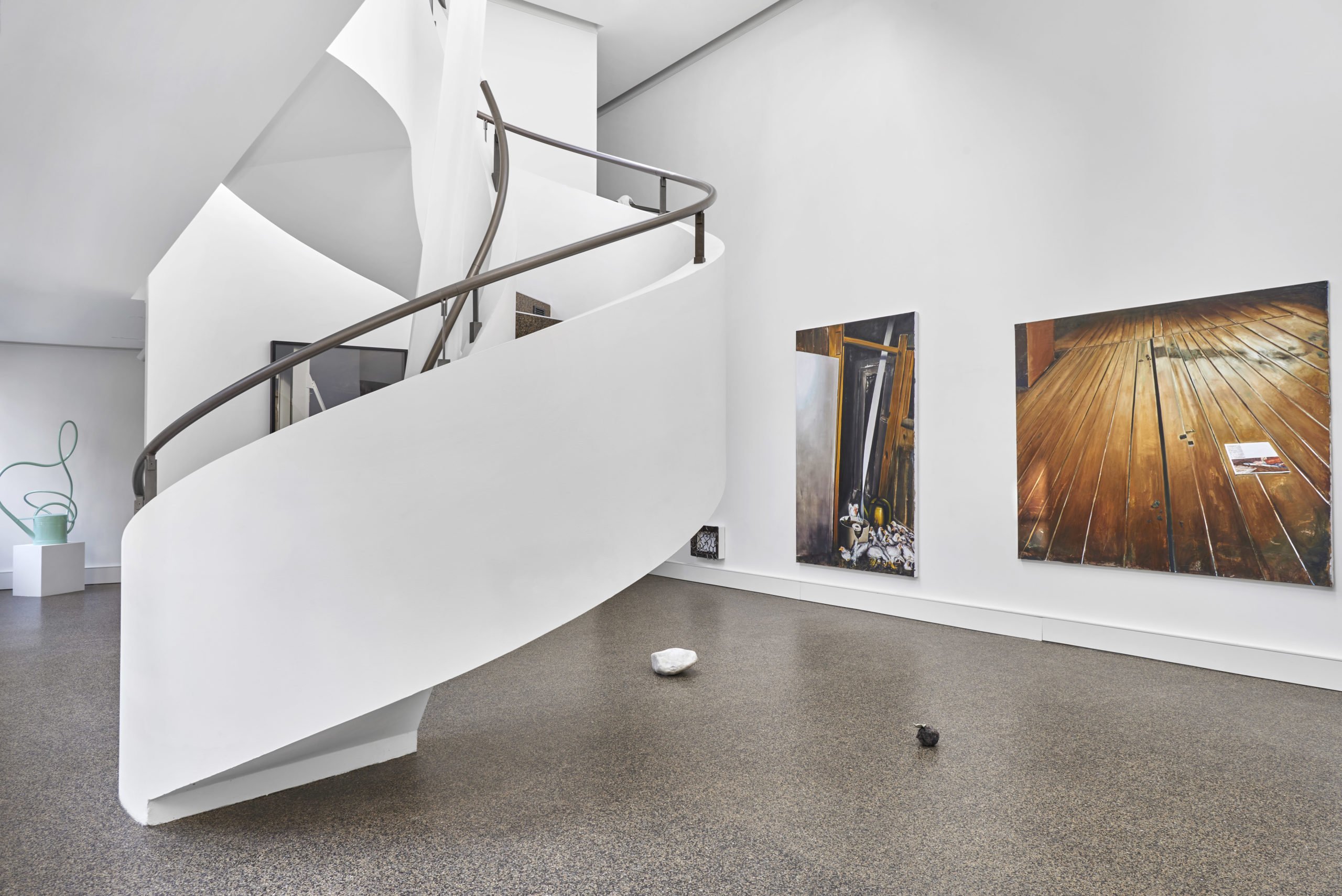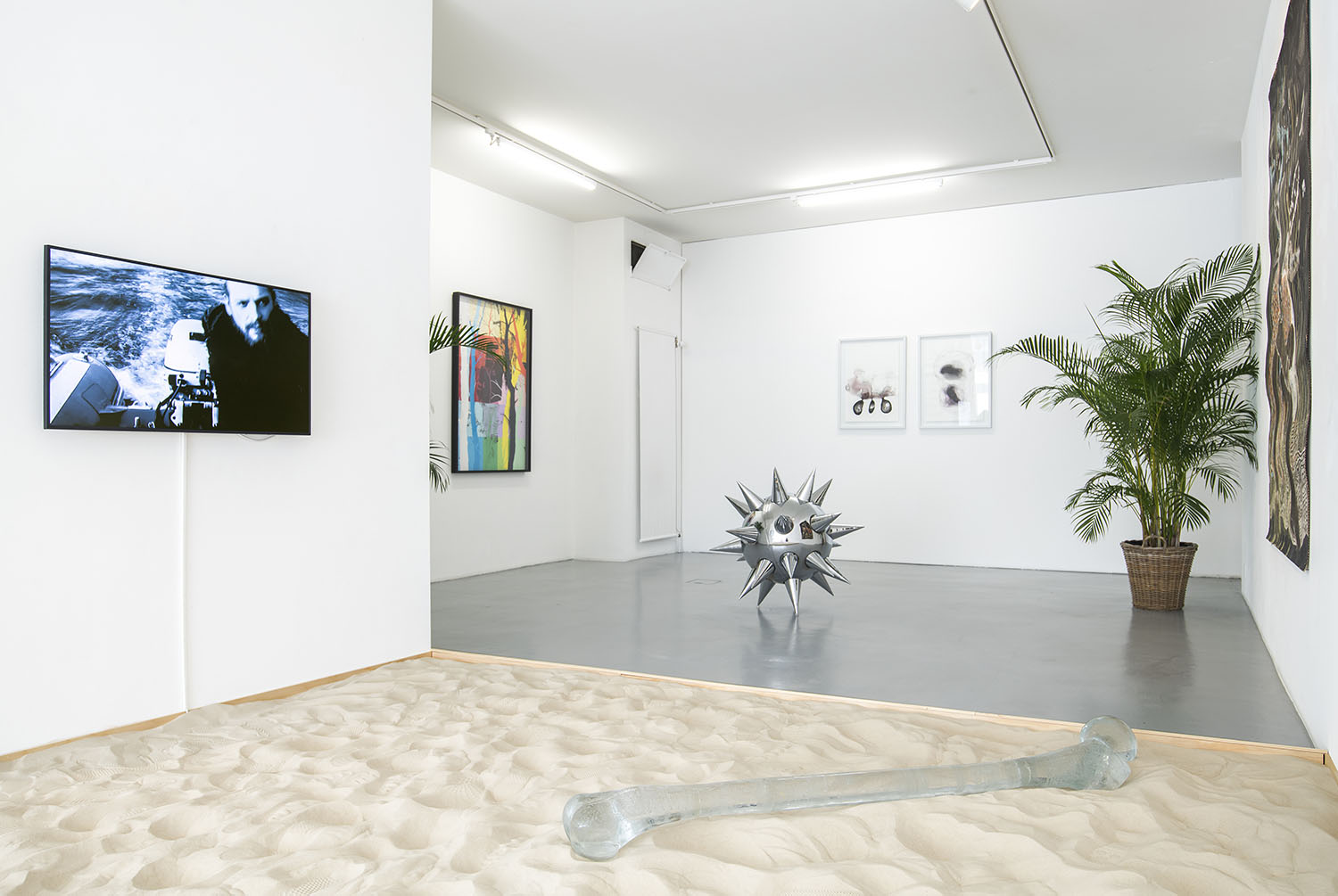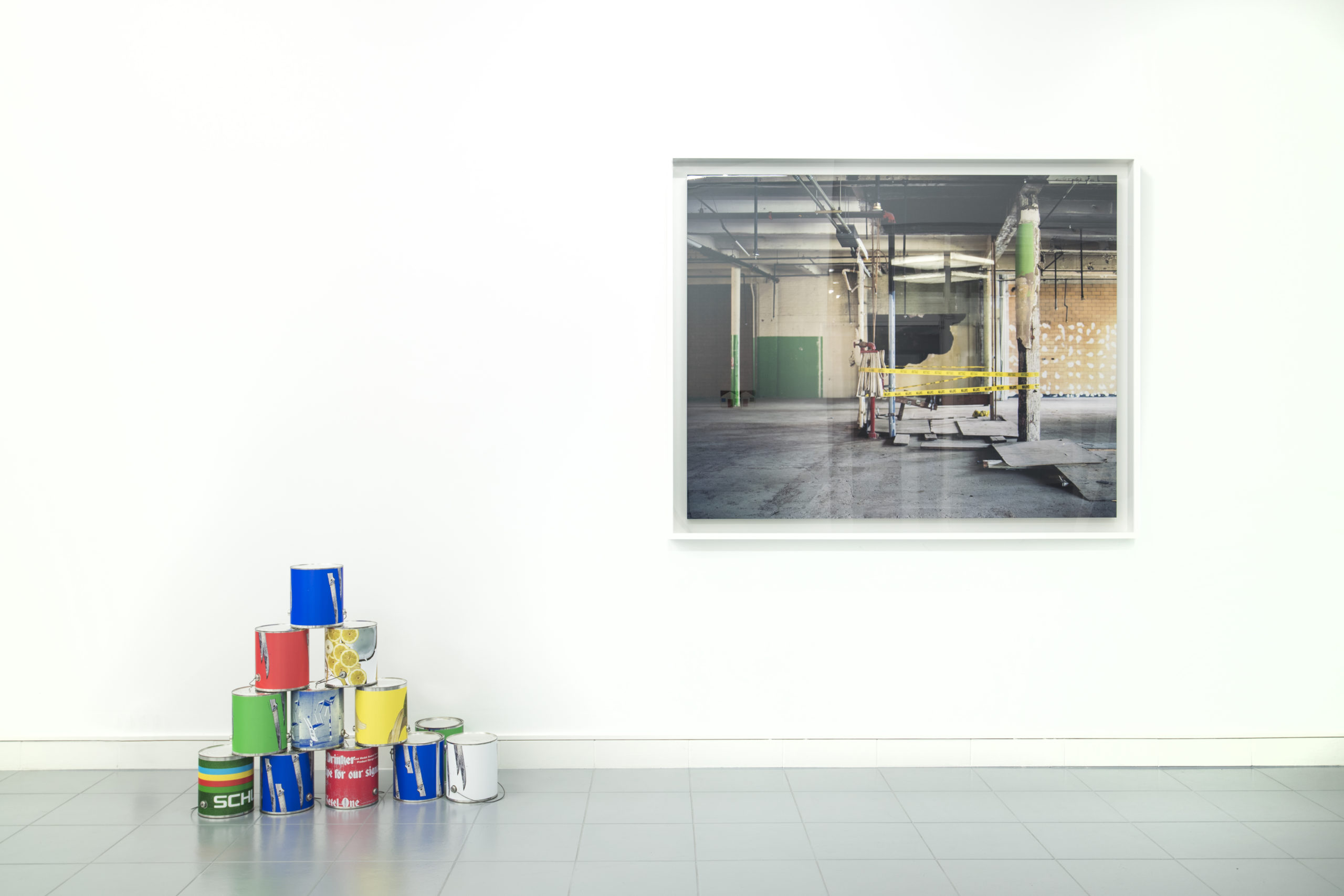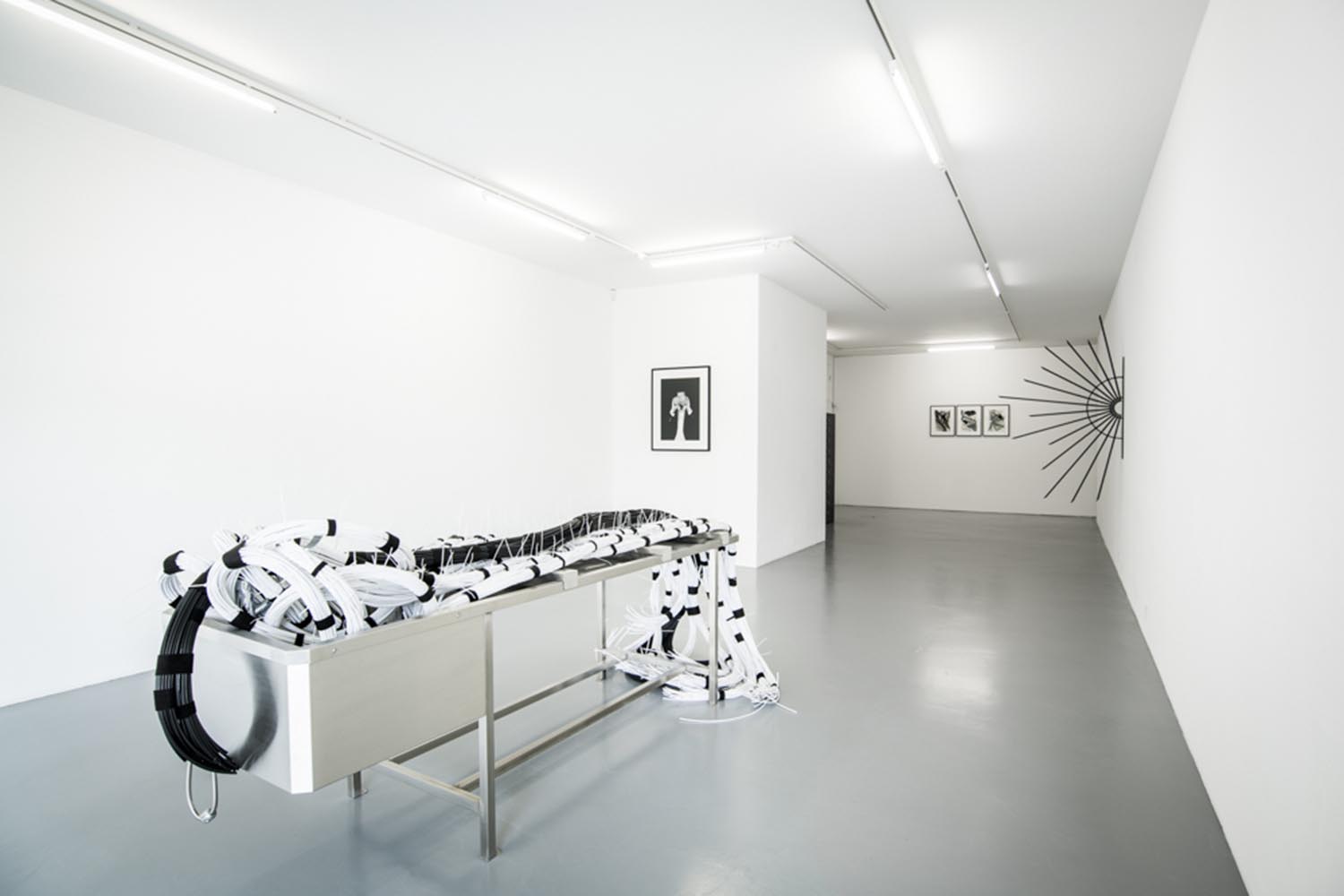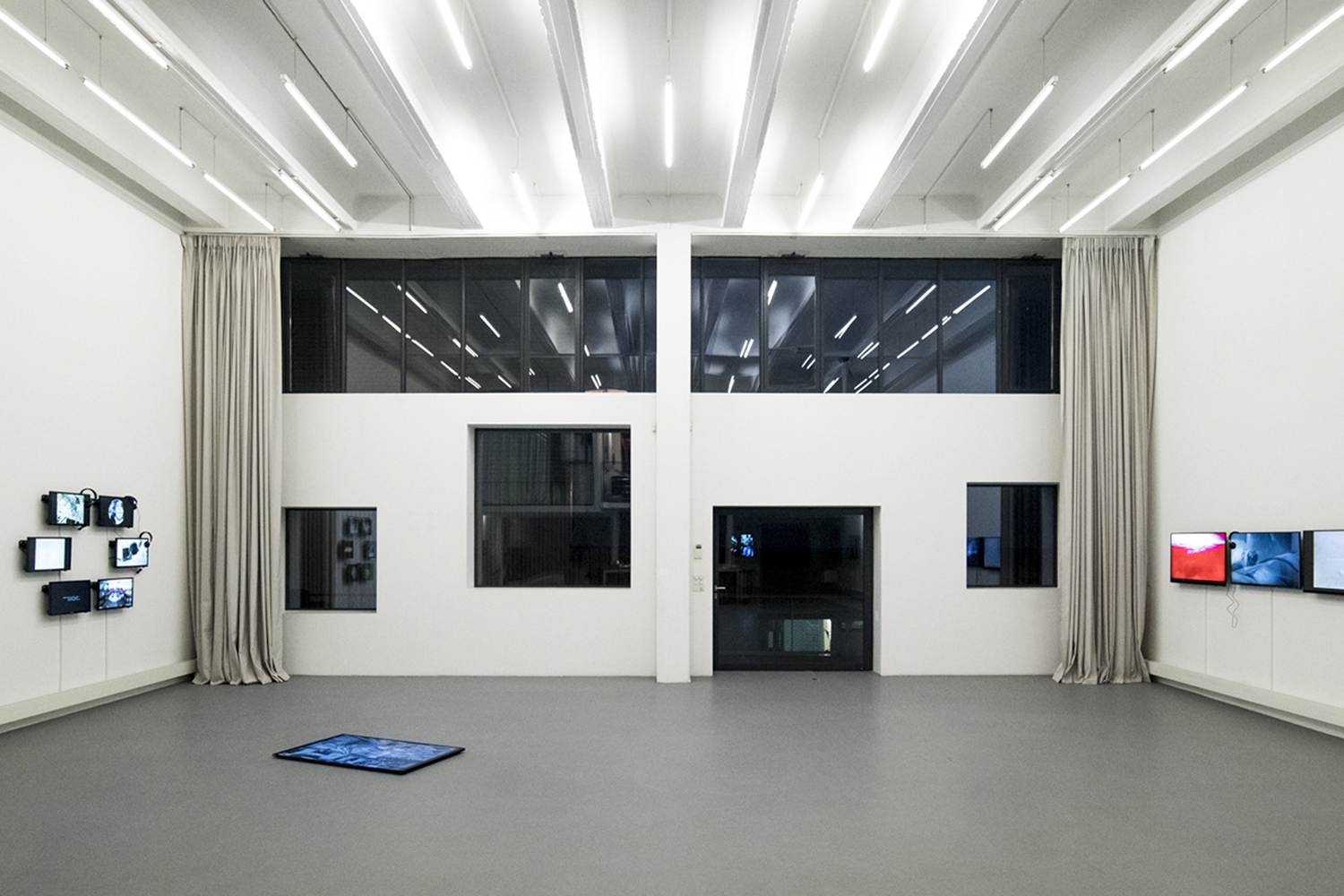mounir fatmi
mounir fatmi was born in 1970 in Tangiers, Morocco. He studied at the Academy of Arts in Rome, at the Casablanca Art School in Morocco and the Rijksakademie in Amsterdam. He lives and works between Spain and Morocco.
Influenced by the idea of obsolete media and the collapse of industrial and consumerist civilization, fatmi reflects on the status of art as something between archive and archaeology. He uses superannuated materials such as antenna cables, old typewriters or VHS cassettes and works on the notion of experimental archaeology by examining the artist’s role in a society in crisis. He plays on the codes and precepts of the latter under the prism of the trinity of language, architecture, and machine. In this way, he questions the limits of memory, language and communication while reflecting on materials that are becoming obsolete and have uncertain futures. The artistic research of mounir fatmi constitutes a thought on the history of technologies and their influence on popular culture. Although they mark critical moments in our contemporary history, the technical materials used by the artist also challenge the transfer of knowledge, the suggestive power of images and criticize the illusory mechanisms that link us to technology and ideologies.
Since 2000, mounir fatmi’s installations have been included in several Biennials, such as the Altai Biennale in Terekta, Russia, the 52nd and 57th Venice Biennales, the 8th Sharjah Biennale, the 5th and 7th Dakar Biennales, and the 2nd Seville Biennale. His work has been presented in numerous solo exhibitions, including ones at the Migros Museum (Zürich, Switzerland), the MAMCO (Geneva, Switzerland) and the Picasso Museum La Guerre et la Paix (Vallauris, France) among others. He exhibited in several group shows, notably at FIAV (Casablanca, Morocco), Foundation Boghossian (Brussels, Belgium), Carnegie Arts Center (California, USA), Centre Georges Pompidou (Paris, France), Brooklyn Museum (New York, USA), Palais de Tokyo (Paris, France), MAXXI (Rome, Italy), Mori Art Museum (Tokyo, Japan), MMOMA (Moscow, Russia), the Victoria & Albert Museum (London, UK), and Louvre Abu Dhabi. He has been awarded the Uriöt prize Amsterdam, the Grand Prix Léopold Sédar Senghor at the 7th Dakar Biennale and the Cairo Biennale Prize.
Read more +
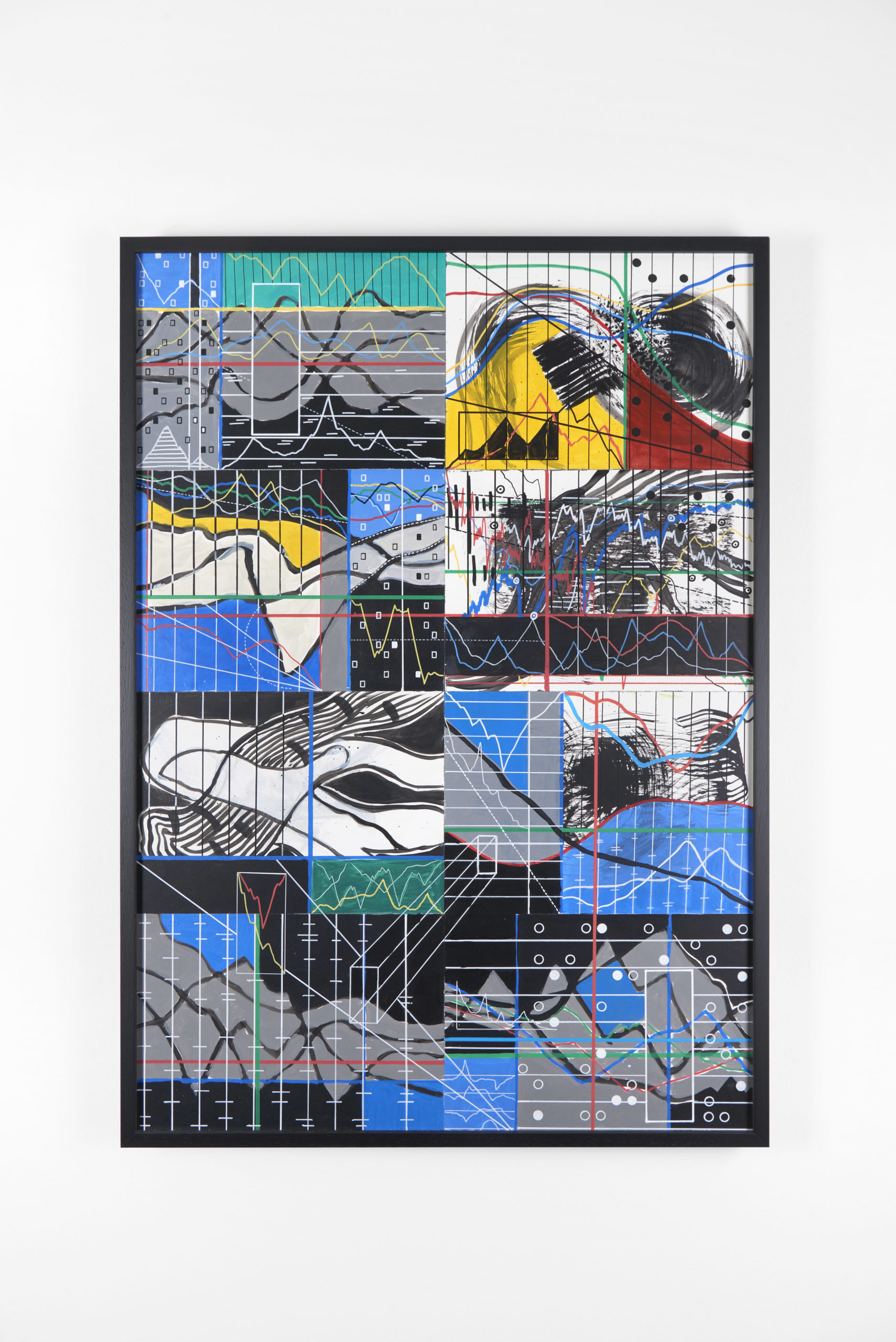
Before the Storm 01, 2019-2022
Acrylic on paper
118,5 x 84 cm

Calligraphy of the Unknown, 2020-2021
Acrylic on paper
50 x 35 cm
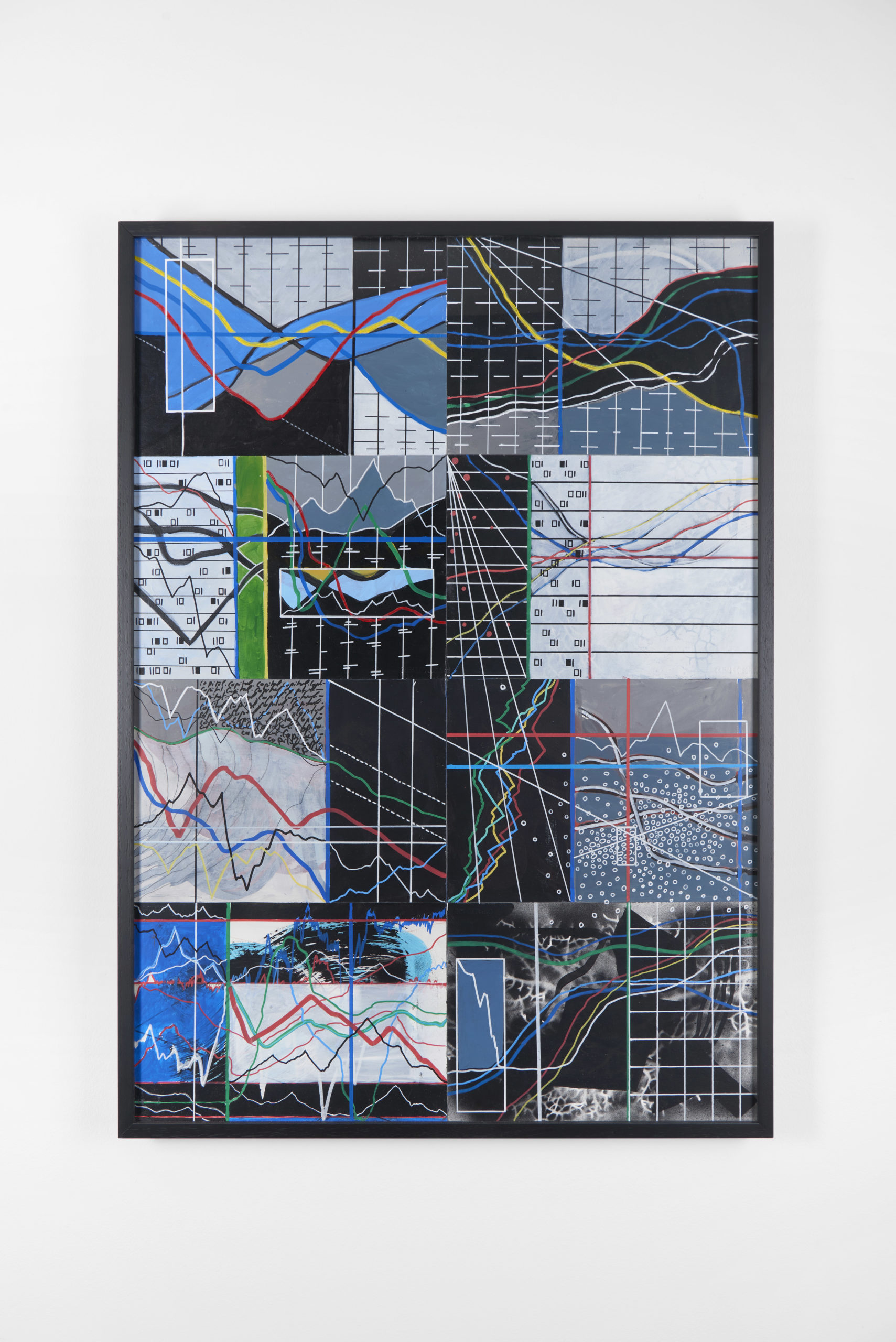
Before the Storm 07, 2019-2022
Acrylic on paper
118,5 x 84 cm
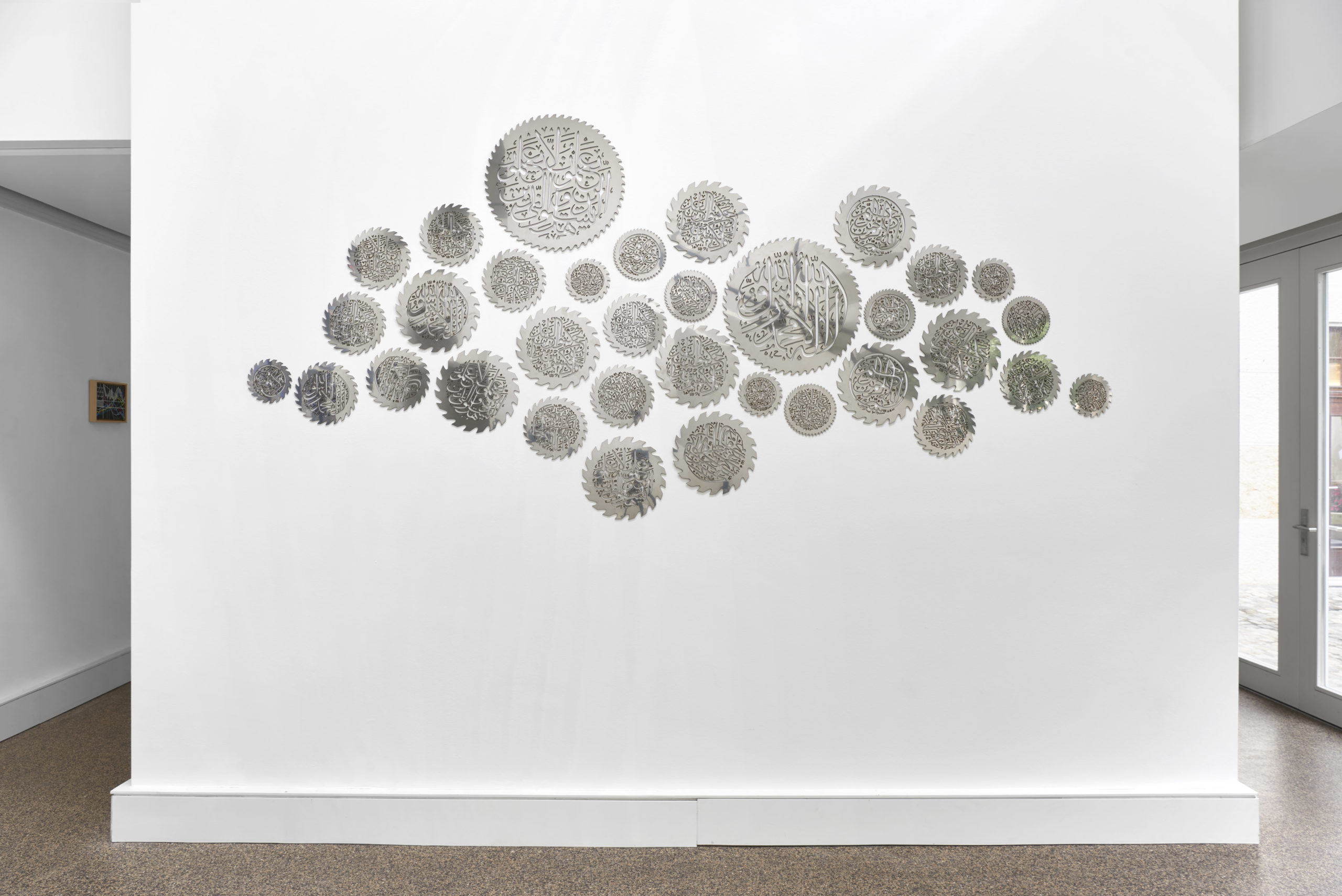
Machinery, 2017
30 saw blades of various sizes, laser cut, calligraphies
Dimensions variable

Dark Dark Dark, 2022
Acrylic on ceramic
Diverse dimensions
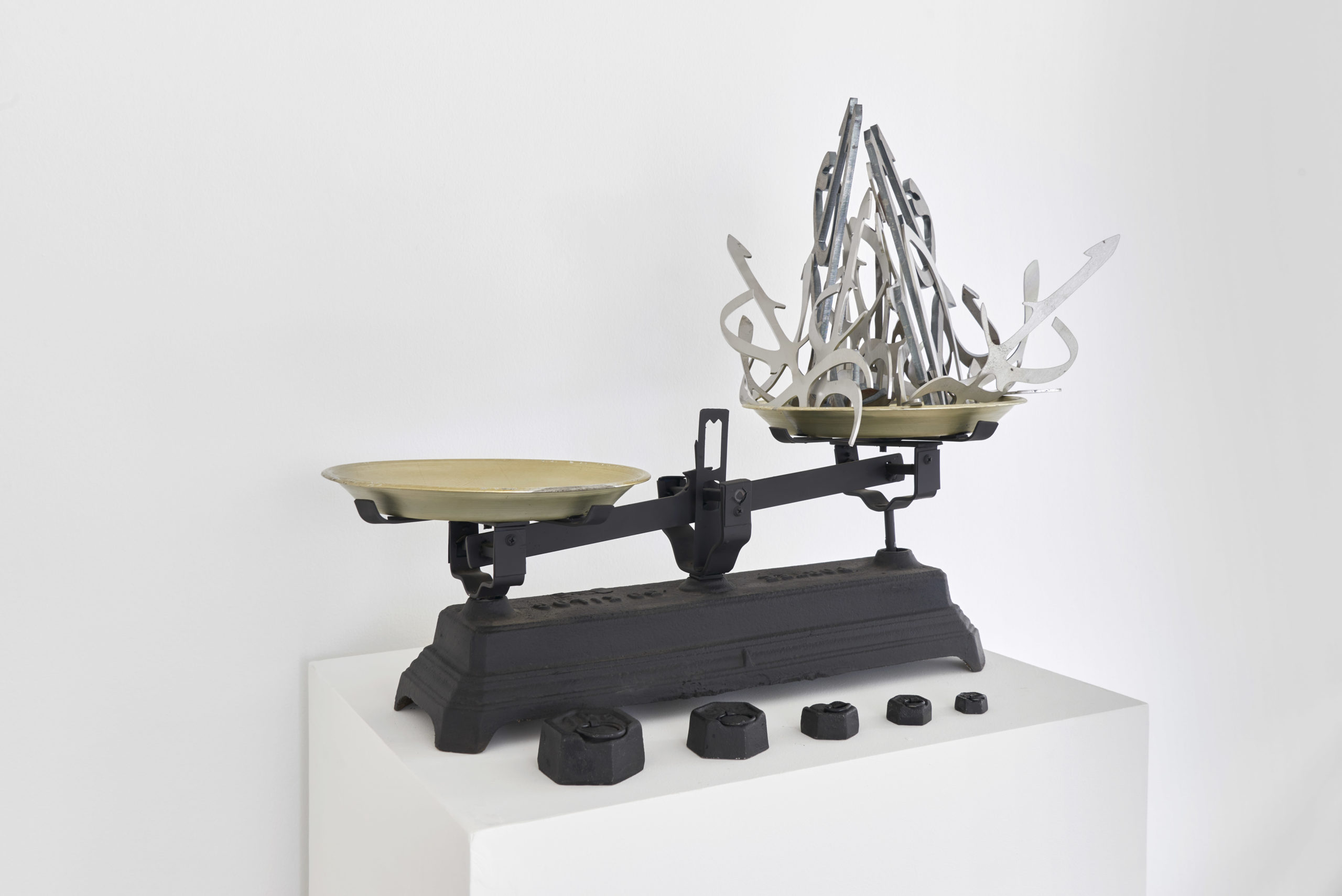
Heavier than words, 2020
Cast iron balance, Arabic calligraphies of steel
Dimensions variable
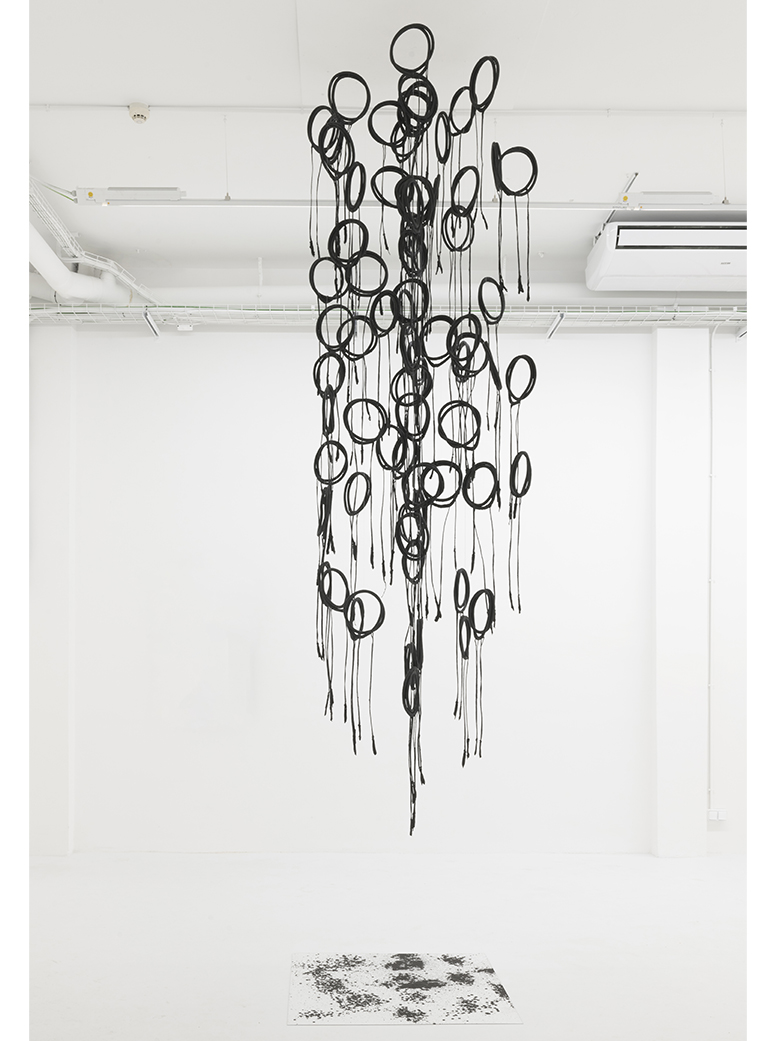
Oil, Oil, Oil, Oil Suspended, 2019
100 agals
Edition of 5
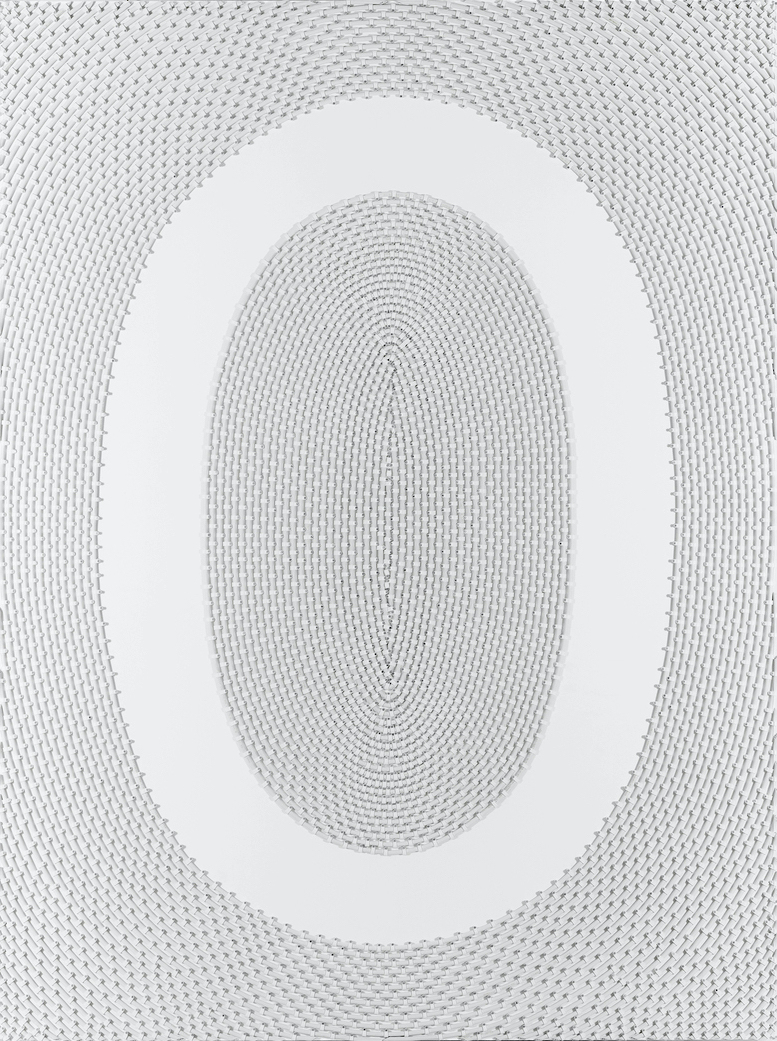
L’année Zéro 08, 2012
Coaxial antenna cable on wooden panel, staples
160 x 120 cm
Edition of 9

Défense 03, 2019
Steel
186 x 117 cm


